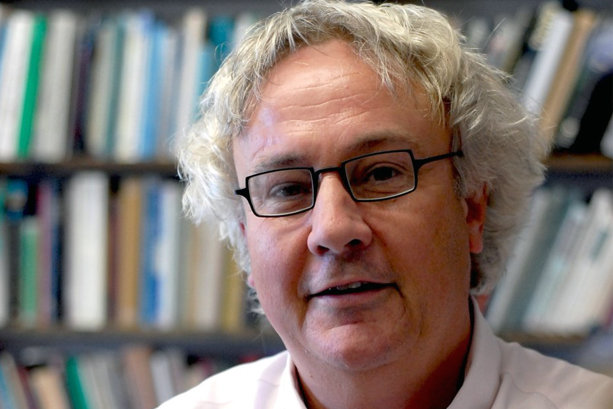Modern science is compatible with Islamic principles: professor

TEHRAN – Charles Taliaferro, a professor of philosophy at St. Olaf College in the U.S., believes that modern science is in agreement with Islamic principles.
In an interview with the Tehran Times recently, Professor Taliaferro says: “The only problem in terms of epistemology and methodology is if one adopted what some today call scientism, the view that only science can provide reliable evidence for our beliefs about reality.”
Following is the text of the interview with Professor Taliaferro:
Q: Is religious science possible or impossible? Basically, what are the confrontation and non-confrontation fields between religion and science? What about those sciences like physics or biology, can they be put together with theology, social sciences or humanities in one group?
A: The relationship of science and religion has historically and today been fluid. In the golden age of Islam from the 8th to the 13th century religion and science flourished together, and one can argue that in the modern age religion has been a positive source for the development of science, especially in the applied science of medicine. In the West, all the early modern scientists from Kepler to Newton were religious people. There was little conflict between science and religion except for the debate on the position of earth in our solar system, until the development of evolutionary biology with Darwin. Evolution per se was seen by some, such as Alfred Russell Wallace, the co-founder of evolutionary biology with Darwin, as how God created life, but in Darwin's later work nature was deemed to lack all marks of purposive direction. And physics has developed in the modern era that some have taken to support the view that the cosmos is without meaning or purpose. The later is, in a sense, a peculiar claim as physics in the modern era has developed explicitly to only concern itself with the physical world in the absence of mind, values, purpose. In other words, even Newton, a devout believer in God, only specified that material bodies were attracted to each other in terms of force. As a person, I am sure he did not doubt that human bodies are attracted together by love, but as a scientist he bracketed these matters. In my view, nothing found in physics or biology or the social sciences rules out a religious worldview, and theology can draw on all sorts of recourses from the physical and social sciences, from Big Bang cosmology to the study of communal identities.
Q: What is your opinion on religious humanities?
A: Actually, in the West, the very latest forms of anthropology and sociology are more open to the reality of values and moral truth-claims than in the late 1940s and 50s. While there are those who will use cognitive science to seek to explain away the evidential force of religious experience, the majority of cognitive scientists working today are neutral about the truth or falsehood of religious claims. I suggest that the natural and social sciences today are largely tools that may be used to serve a variety of philosophies and religious interpretations of the world.
Q: Basically, is the epistemology of modern science in harmony with Islamic principles? Is there conformity in their epistemology or methodology?
A: I believe modern science is compatible with Islamic principles. The only problem in terms of epistemology and methodology is if one adopted what some today call scientism, the view that only science can provide reliable evidence for our beliefs about reality. A great many of us in higher education today, scientists and non-scientists, believe in a broader view of inquiry. We do well to recall that the sciences themselves rest on a philosophy, a philosophy of reason, inquiry, the nature of explanation, and so on. As such, full inquiry requires philosophical reflection and not just a narrow appeal to empirical data and experimentation.
Q: Opponents of the religious science believe that science is not a creative engineering plan but it has to be discovered. On the other hand, according to believers in religious science, (human) science is manageable and we can design our policies for them, like what happened to modern science and its management in the world. What is your opinion?
A: There is a great variety of views to consider. At one end, there are instrumentalists who think that science is not chiefly concerned with truths about reality, but with control and prediction. And then there are those who espouse scientism, as just described. I suggest that the natural and social sciences are, like almost all modes of human experience and inquiry, subject to abuse and can be used to manipulate people. I believe that what is most needed today, culturally and personally, is a sense of humility and a higher regard for the good, freedom, and rights of individual human persons. From such a perspective the sciences can be used for human flourishing and the wellbeing of the planet, but in the hands of more tyrannical forces, the sciences can be used in the service of dehumanization and destruction.
Q: Some critics of religious science believe that it will not produce a definable result because of non-functionality, while some others search for the main causes of this non-functionality. What are the sources for the verity of science in general and religious science in particular?
A: As I suggested, I believe we need a robust affirmation of the good, freedom, and rights of individual human persons, and I should add, communities. When we talk about functions or non-functionality, I suggest we will always have some framework in mind. If we define functionality in impersonal terms such as the projection of military power or the accumulation of material wealth, we may be functioning well but lose our souls.
Leave a Comment